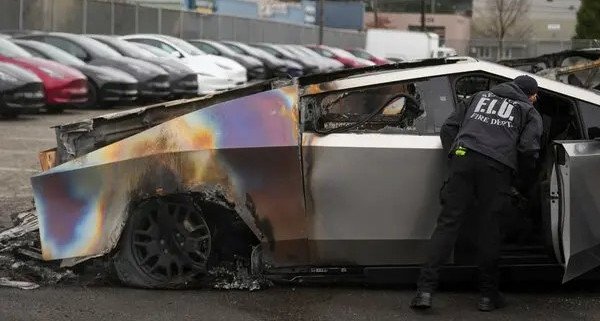In recent weeks, a storm of protests has erupted across multiple continents, targeting none other than tech billionaire Elon Musk and his globally recognized electric vehicle company, Tesla. From graffiti-sprayed vehicles to outright destruction of showrooms, the scale of discontent has grown rapidly—signaling one of the most severe backlashes Musk has faced in his controversial career. The anti-Musk sentiment, once limited to social media echo chambers, has now spilled onto the streets in a wave of coordinated and spontaneous demonstrations.
### A Global Outcry Gains Momentum
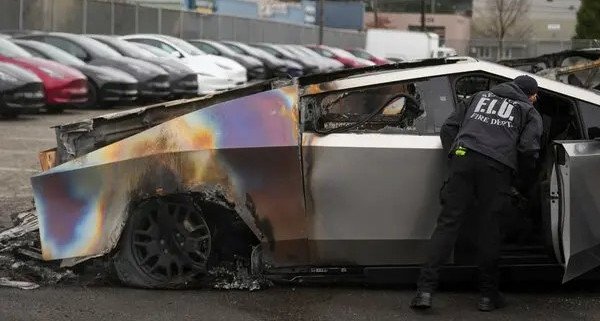
The protests have not been confined to one region or demographic. Demonstrations have surged in North America, Europe, Asia, and even parts of Australia. In cities like San Francisco, Berlin, Paris, and Tokyo, Tesla cars have been vandalized, showroom windows smashed, and protestors have carried banners calling for Musk’s resignation as CEO of Tesla and SpaceX. In some areas, protestors have even set fire to Tesla vehicles parked in public areas.
The scale of the movement has stunned observers. What began as isolated acts of dissent has transformed into a powerful, organized campaign demanding change. Protesters are voicing frustration with Musk’s leadership style, controversial social media behavior, political influence, and what many describe as his exploitation of technological innovation for personal gain.
### The Catalysts: Why Now?
Several key events have converged to ignite this global fury. First, Musk’s recent political affiliations and controversial tweets have drawn criticism from a wide range of groups, including labor unions, climate activists, and human rights organizations. His increasingly vocal stance on issues such as immigration, labor laws, and artificial intelligence regulation has alienated former allies and emboldened critics.
Second, reports of poor labor practices at Tesla’s manufacturing plants have resurfaced, with whistleblowers alleging unsafe working conditions, unfair wages, and a toxic work culture. These revelations have amplified worker protests, particularly in Germany, where Tesla’s Gigafactory has faced multiple labor disputes in recent months.
Third, environmental groups argue that despite Tesla’s green image, the company contributes to environmental degradation through lithium mining and other unsustainable supply chain practices. This has prompted activists to label Tesla as “greenwashing” rather than leading a true clean energy revolution.
### Tesla Showrooms Under Attack
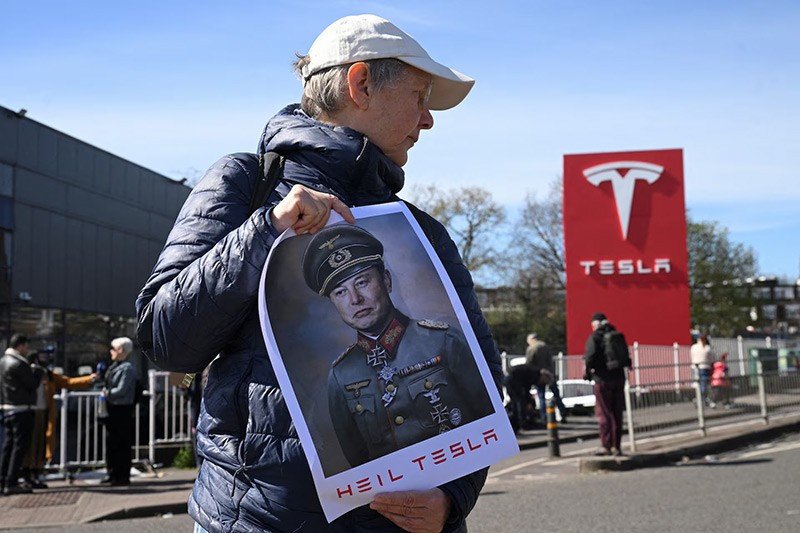
Perhaps the most visible consequence of the protests has been the widespread targeting of Tesla showrooms. In London, activists chained themselves to the doors of a Tesla dealership, blocking customers from entering. In Los Angeles, masked individuals were caught on camera defacing Tesla signage and smashing windows.
In Paris, protestors hurled red paint over a row of parked Teslas to symbolize what they called the “blood cost” of Musk’s success. Some protestors have also carried mock coffins to symbolize the workers allegedly harmed by Tesla’s labor policies and those affected by AI-driven job displacement, which Musk has openly championed.
This wave of vandalism has not only disrupted Tesla’s sales but also forced the company to increase security at key locations worldwide. Some locations have temporarily closed due to the severity of the attacks.
### Elon Musk Responds to the Chaos
In true Musk fashion, the billionaire took to X (formerly Twitter) to address the protests, dismissing many of the criticisms as “misguided activism” and “media-fueled hysteria.” He stated that Tesla remains committed to innovation and sustainability, calling the attacks a threat to progress and free enterprise.
However, critics argue that Musk’s dismissive tone only worsened the situation. His comments sparked further outrage, with many accusing him of being tone-deaf and out of touch with public sentiment. Some have even called for shareholders to step in and evaluate his future with the company.
### Political and Legal Ramifications
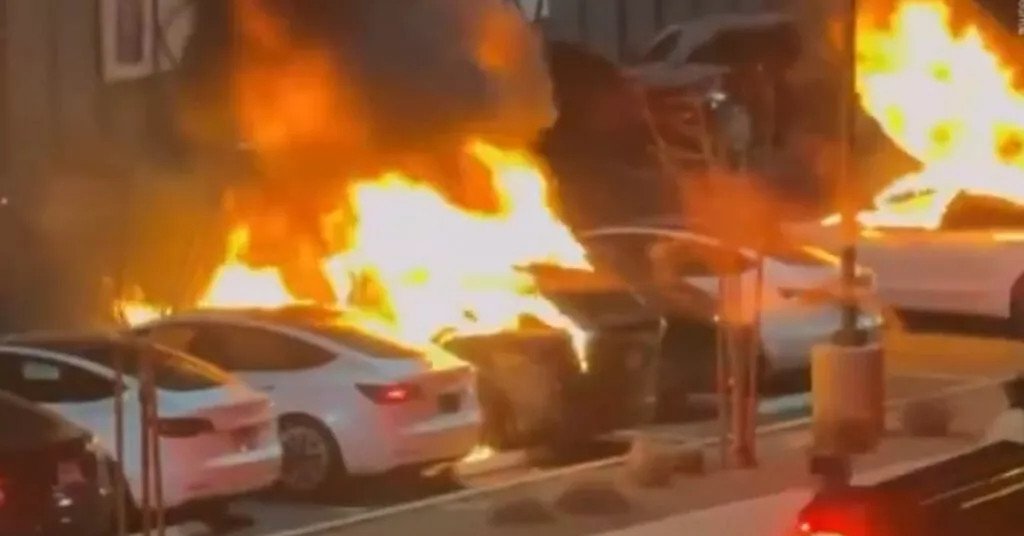
Governments around the world are beginning to take notice. In Germany, lawmakers are debating whether to investigate labor violations at Tesla’s Berlin plant. In the United States, the Department of Labor is reportedly reviewing claims made by former employees regarding safety and wage concerns. In France and Sweden, environmental ministers have openly criticized Tesla’s mining practices and called for more stringent regulations on EV manufacturers.
Legal experts suggest that if the claims against Tesla are substantiated, the company could face millions in fines, lawsuits, and potentially stricter operational restrictions across multiple jurisdictions.
### The Role of Social Media and Influencers
A large part of the protest’s momentum has been fueled by social media. Influencers, former Tesla employees, and even celebrities have posted videos condemning Musk’s actions and supporting the protest movement. Hashtags like #BoycottTesla, #FireMusk, and #ElonExposed have trended globally.
TikTok and Instagram have become platforms for protestors to document vandalism, share stories of alleged abuse, and call for broader corporate accountability. In one viral video, a former Tesla engineer emotionally detailed the conditions he faced while working under high pressure in an unsafe environment. His story quickly gained millions of views and sparked a broader conversation about tech workplace ethics.
### Public Opinion is Shifting
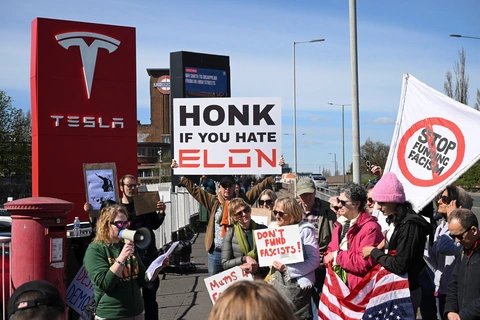
Once hailed as a visionary entrepreneur and the savior of sustainable transport, Musk’s reputation appears to be under significant threat. According to a recent global survey conducted by a consumer insight firm, public trust in Musk and Tesla has dropped by nearly 40% in just the past six months.
Former Tesla enthusiasts are rethinking their support, with some returning their vehicles or canceling pending orders. Car forums and online communities that were once dominated by Tesla fans are now filled with debates about corporate responsibility, ethical manufacturing, and the dangers of unchecked billionaires.
### Financial Impact on Tesla
The protests and resulting bad press have also impacted Tesla’s financial performance. Stock prices have seen sharp fluctuations, with analysts warning that the company may lose significant market share if the unrest continues. Investor confidence appears shaken, particularly as calls grow louder for a leadership change.
In response, Tesla has launched a new PR campaign emphasizing its commitment to sustainable innovation and ethical business practices. The campaign includes employee testimonials, third-party audits of its supply chain, and community investment initiatives aimed at repairing its image.
Whether these efforts will be enough to stem the tide of negative sentiment remains to be seen.
### What This Means for the Future of Tech Giants
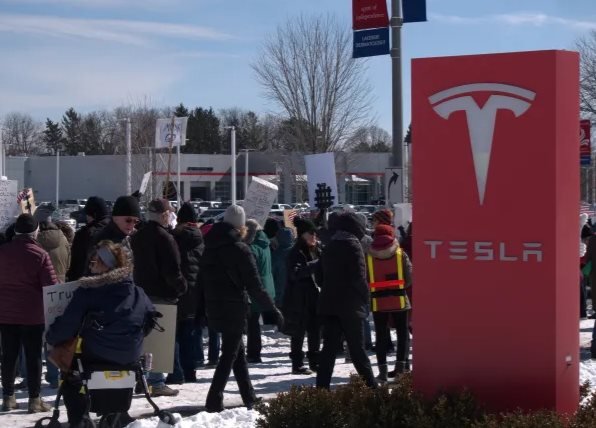
The global protests against Elon Musk mark a turning point in how society views tech moguls. For years, figures like Musk have operated with a level of celebrity immunity, their innovations often shielding them from deep public scrutiny. But this latest wave of resistance suggests that the public is no longer willing to accept unchallenged authority, even from those who claim to be building the future.
Protestors argue that innovation must be paired with accountability, and that visionary leadership cannot excuse ethical lapses. The message is clear: the era of unchecked tech dominance is facing its reckoning.
### Conclusion: The Battle for the Future
As protests continue to sweep across nations, the spotlight on Elon Musk and Tesla grows brighter—and hotter. This crisis is no longer just about vandalized cars or angry tweets. It’s about public accountability, corporate ethics, labor justice, and environmental sustainability.
Tesla, once seen as a beacon of innovation, now stands at a crossroads. How it responds to this challenge may determine not only its future but also the fate of tech giants worldwide. And as for Musk, the world is watching to see whether he will evolve—or fall victim to the very disruption he once championed.
